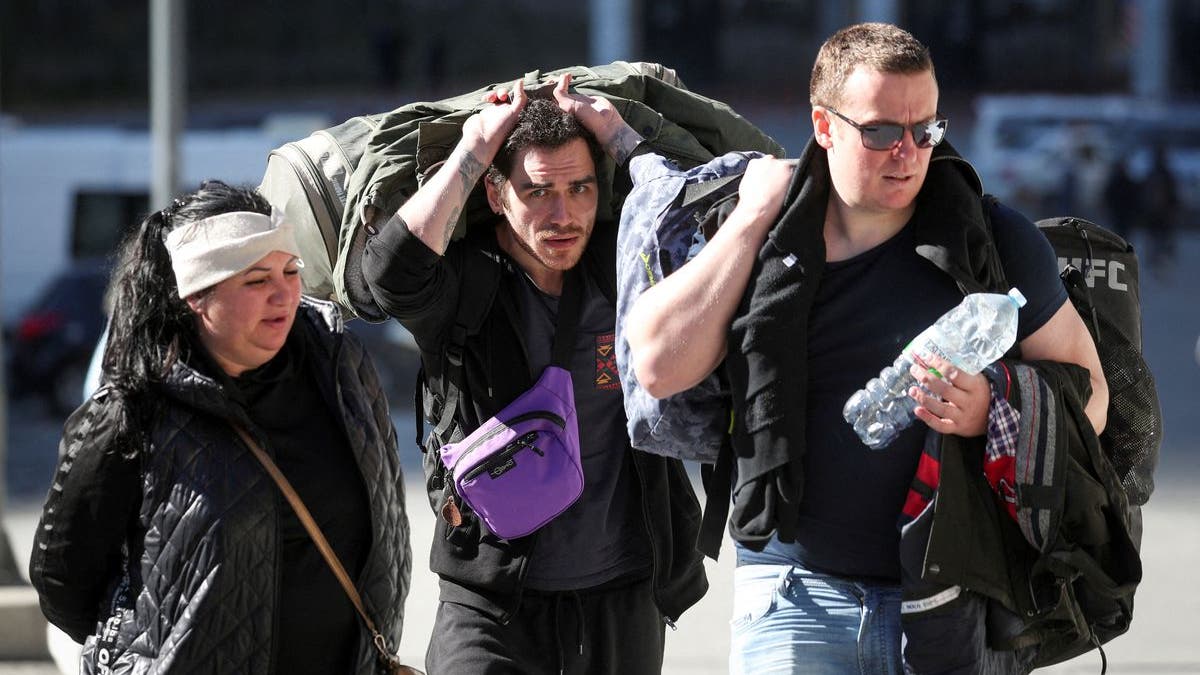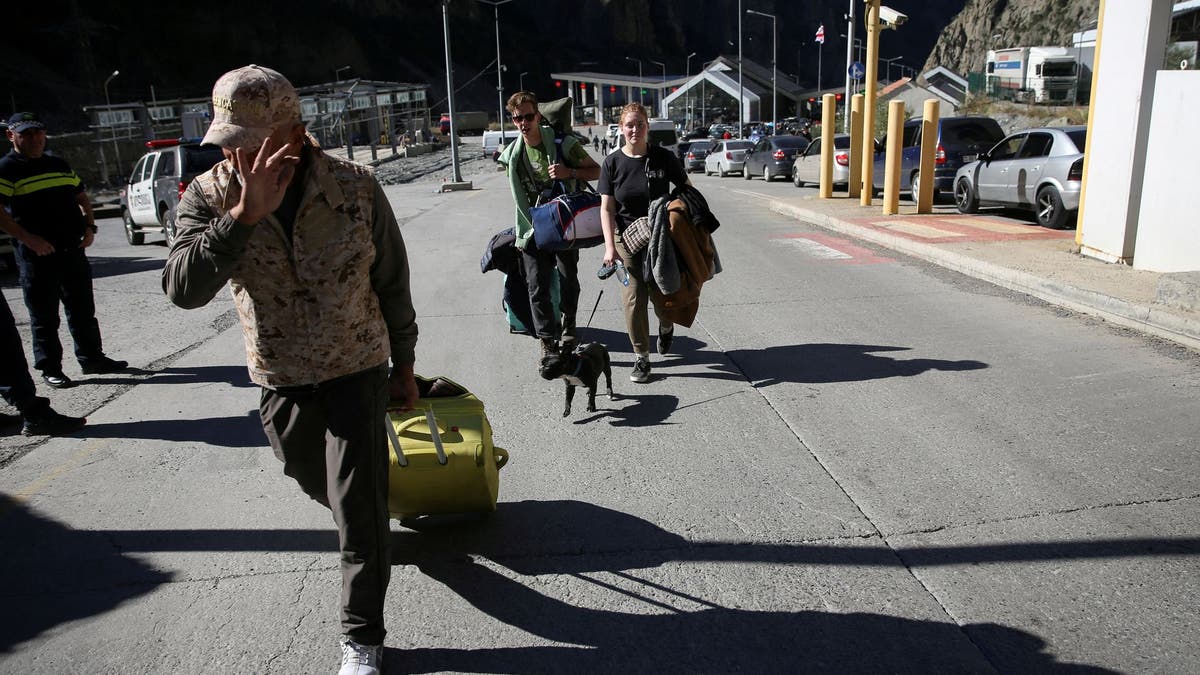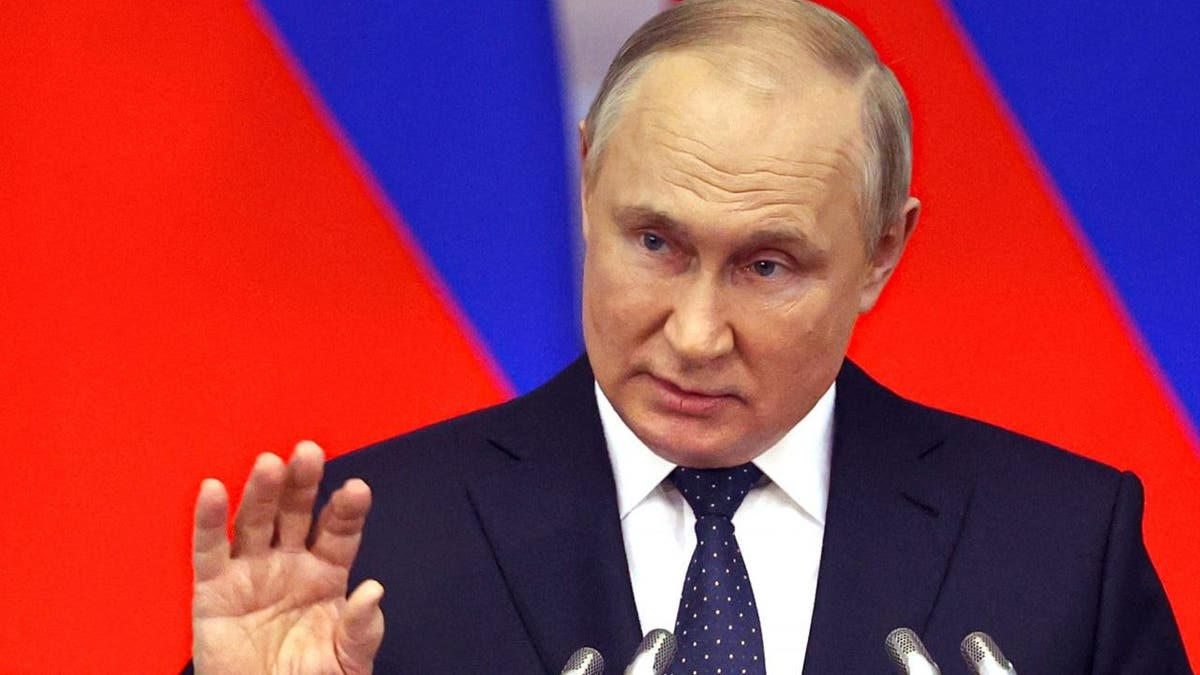Fox News Flash top entertainment headlines September 27
Fox News Flash top entertainment and celebrity headlines are here.
On Monday evening, Nikita, a 24-year-old from the Russian city of Voronezh, drove up to a border crossing on the arid steppeland along Russia’s remote border with Kazakhstan. Around 500 cars were already in line at the isolated checkpoint.
A Russian army reservist liable to be called up under the partial mobilisation President Vladimir Putin announced last week, Nikita had decided to flee to the relative safety of Atyrau, an oil boom town in western Kazakhstan, where his brother and a close friend had already arrived.
"The border is like death," Nikita told Reuters in an interview over the Telegram messaging app. "In five hours they only let 50 people across".
His escape was part of a vast exodus from Russia that has seen thousands of military-age men make for the borders with Finland, Georgia, Kazakhstan and Mongolia. On Monday, Novaya Gazeta Europe reported that 261,000 men had left Russia since mobilisation was declared, citing a Kremlin source.

Travelers from Russia cross the border to Georgia at the Zemo Larsi/Verkhny Lars station, Georgia September 26, 2022. (REUTERS/Irakli Gedenidze/File Photo)
On the Kazakhstan border, Nikita described would-be emigres pitching tents along the highway leading up to the Vishnyovka border post, while others less well-equipped slept on the tarmac, building makeshift beds out of their own clothes.
Giving up on the border crossing after four hours of waiting and getting a room for the night in the nearby city of Volgograd, Nikita and his girlfriend told Reuters they were still determined to find an alternative way out of Russia, and were looking at public transport links across the border.
He said: "Trains and buses are still going, but tickets are impossible to get hold of."
'HOPELESS SITUATION'
Kazakhstan’s Interior Ministry on Tuesday said that 98,000 Russians had entered the country in the last week, although 64,000 had left. The ministry said it would not repatriate Russians who entered the country in order to dodge the draft.
Russians can stay in Kazakhstan for up to 90 days without a visa.
NORD STREAM PIPELINE BLASTS WERE LIKELY FROM EXPLOSIONS, NOT EARTHQUAKES, SEISMOLOGIST SAYS
Kazakh President Kassym-Jomart Tokayev was quoted by Russian news agencies on Tuesday as stressing the need to take care of the new arrivals.
Tokayev said: "In recent days, many people from Russia have been coming to us. Most of them are forced to leave because of the current hopeless situation. We must take care of them and ensure their safety. This is a political and humanitarian issue."

Travelers from Russia cross the border to Georgia at the Zemo Larsi/Verkhny Lars station, Georgia September 26, 2022. (REUTERS/Irakli Gedenidze/File Photo)
The mobilisation announcement touched off a frenzy inside Russia, with many young men seeking ways to avoid fighting in Ukraine.
On social media, closed groups sprang up offering everything from tips for crossing at specific border crossings, to organising private charter flights. One Telegram group offered seats on a flight from Moscow’s Domodedovo airport to the Kazakh capital Astana for 140,000 roubles ($2,400).
Some of the most dramatic scenes were at Russia’s only operational border crossing with Georgia, which allows Russians to stay for a year without a visa.
At the Verkhny Lars border crossing, which straddles a narrow road through a spectacular Caucasus mountain pass, local authorities said that 3,500 cars were waiting to cross into Georgia.
'COMPLETE HELL'
Veronika Karcheva, a Tbilisi-based tour operator who relocated from Russia in June, was preparing to receive a group of tourists from Russia when Putin announced partial mobilisation.

Russia President Vladimir Putin. (Alexander Demyanchuk, Sputnik, Kremlin Pool Photo via AP)
Once mobilisation was announced, Karcheva cancelled her tour group and instead put on a bus across the border from the Russian city of Vladikavkaz for those seeking to escape urgently.
Karcheva said: "At the time, I really didn’t understand the scale of the tragedy, of what was happening."
RUSSIANS ARRESTED IN THOUSANDS WHILE PROTESTING PUTIN'S MOBILIZATION, HUMAN RIGHTS GROUP SAYS
On Tuesday, the head of the Georgian interior ministry said that about 10,000 Russians were entering Georgia every day, up from 5,000-6,000 before the mobilisation announcement.
But there were also signs that Russian authorities were clamping down on the route.
Authorities in the local region of North Ossetia, part of Russia, announced they were setting up a temporary draft office on the border, and that reservists attempting to leave Russia would be given draft papers on the spot.
Karcheva said that the situation on the Russian side of the border was deteriorating, with traffic backed up as far as Vladikavkaz, 31 km (19 miles) away and those queued up increasingly desperate to escape from Russia.
CLICK HERE TO GET THE FOX NEWS APP
Karcheva said: "It’s complete hell. If you aren’t rude enough, if you aren’t nasty enough, you’ll be stuck there forever."
"I realised that there’s nothing that I can do anymore. I’m going to focus on helping people who are already in Tbilisi," she said.









































